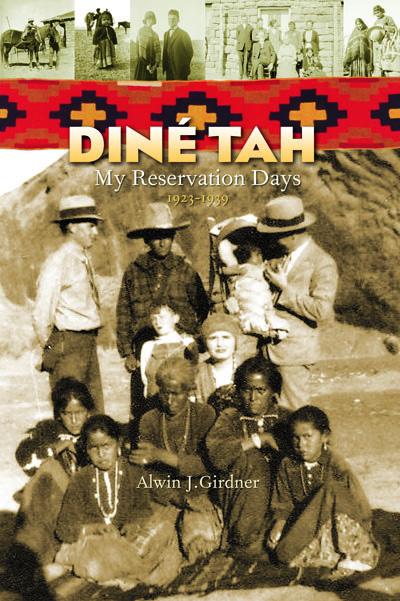Evans Biography and Handcart Award Winners Announced at Utah State
A redemption story of labor activist Joe Hill and the tale of a missionary’s son growing up on the Navajo reservation captured the 2011 Evans Biography Award and 2011 Evans Handcart Awards. Presented in 2012, the awards highlight the best new books published in 2011 with a focus on the Interior West and are administered by the Utah State University’s Mountain West Center for Regional Studies.
“The entries this year were quite diverse and of a very high caliber, and it was a real challenge for our jurors to select the two winning biographies,” said Patricia Lambert, director of the Mountain West Center. “This is a testament both to the quality of the biographical literature being produced on ‘Mormon Country’ and to the many fascinating stories that remain to be told about the people who shaped the history and landscape of this western region.”
The Evans Awards were endowed by the family of David Woolley Evans, a writer and founder of an advertising and public relations agency bearing his name, and Beatrice Cannon Evans, a historian and family genealogist. Both were born in 1894.
The Evans Biography and Handcart Award were established in 1983 and 1996 to encourage high-quality writing about the people who have shaped the growth and character of the “Mormon Country” in the words of the awards’ founders – that region historically influenced by Mormon institutions and social practices. A national jury selects the winner of the Evans Biography Award, which comes with a $10,000 prize. Previous winners include Leonard J. Arrington, one of the foremost scholars of Mormon history, and Terry Tempest Williams, a renowned environmentalist and nature writer. A regional jury selects the recipient of the Evans Handcart Award, which includes a $2,500 prize and recognizes a new or emerging author.
William M. Adler, an investigative journalist published in “The Texas Observer,” “Rolling Stone,” “Mother Jones” and “The Washington Post” won the 2011 Evans Biography Award for his book “The Man Who Never Died: The Life, Times, and Legacy of Joe Hill, American Labor Icon” (Bloomsbury USA, 2011). Adler has authored two other books including “Mollie’s Job: A story of Life and Work on the Global Assembly Line” (Scribner, 2000) and “Land of Opportunity: One Family’s Quest for the American Dream in the Age of Crack” (Atlantic Monthly Press, 1995).
His latest work profiles the life and death of Joe Hill, a Swedish born songwriter for the Industrial Workers of the World who became a martyr of organized labor movements. At the time of his death many, including President Woodrow Wilson, believed he was wrongly convicted of a 1914 murder in Utah. Hill was sentenced to death by firing squad in 1915. Adler spent years investigating the case and presents new, previously unpublished evidence of Hill’s alibi. The book argues Hill wasn’t a killer but a man wrongly convicted by a jury eager to send a message to his labor union.
“Adler’s rich and expansive study of Hill’s life in the context of music, political philosophy and action, the geography of union activity, made a world come alive for me that I did not know,” one jury member said of the work. “His vivid and lively writing style captured me within its grip and kept me interested for hours before I finished reading the book. His extensive research and interpretation of cultural nuance and legal documentation was of particular value. Hill became a vehicle for understanding an era and particularly the men who lived beneath the surface, on the edges and who chose lives of personal belief and commitment.”
New author Alwin J. Girdner received the Evans Handcart Award for his book “Diné Tah: My Reservation Days 1923-1939″ (Rio Nuevo Publishers, 2011). The book grew out of bedtime stories Girdner told his children of his time on the reservation in the Four Corners region of northern Arizona. He is the son of Plymouth Brethren missionaries and spent much of his first 18 years among the Navajos, having little contact with the outside world. He is a native Navajo speaker and holds degrees in business and Southwestern and Latin American history from the University of Arizona. Girdner describes the book as an account of early missionary activity, told from the people and events he witnessed as a child before World War II changed the way of life and customs of the Dineh people.
“This work is a lovely memoir with such a nice tone showing a love and respect for all people and groups mentioned,” one juror said. “I love the photographs and the narrative. It is a book that can be mined later by scholars with a lot of original stories.”
The public is welcome to attend an awards ceremony to meet the winning authors and publishers at 2 p.m. Friday, Sept. 21. The event will be held at the David B. Haight Alumni Center on the Utah State University Logan campus.


